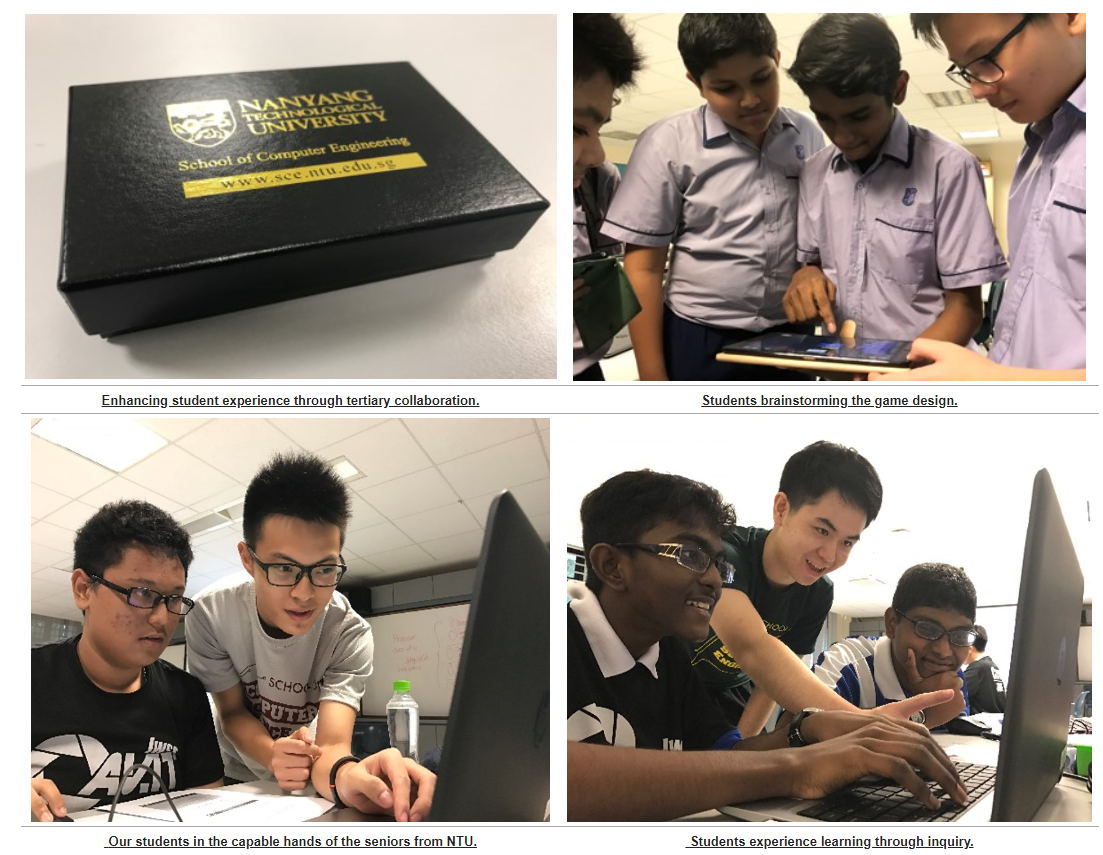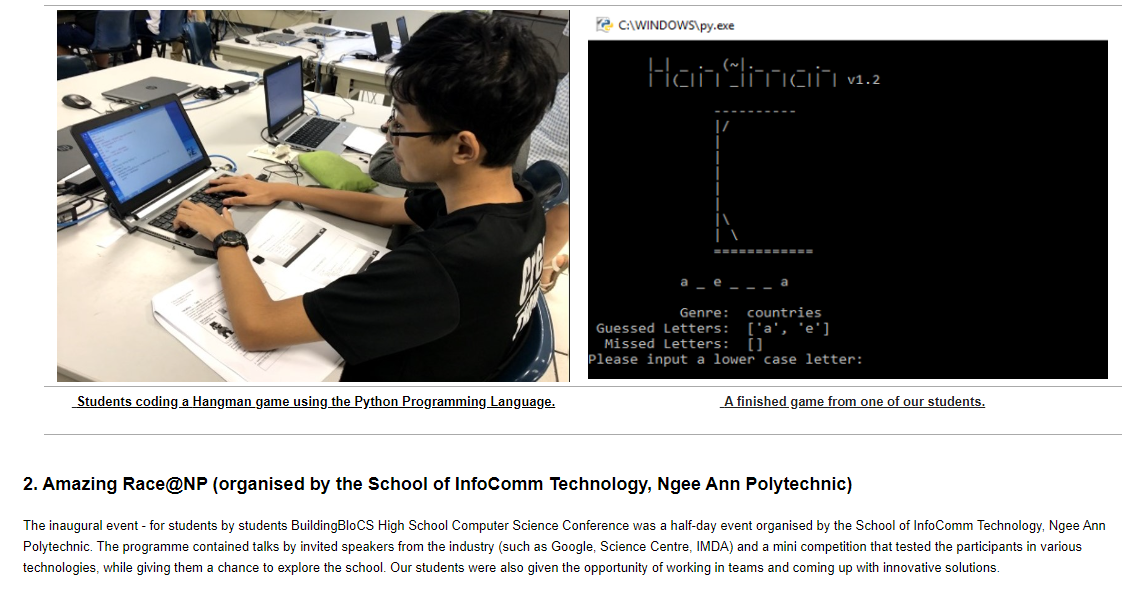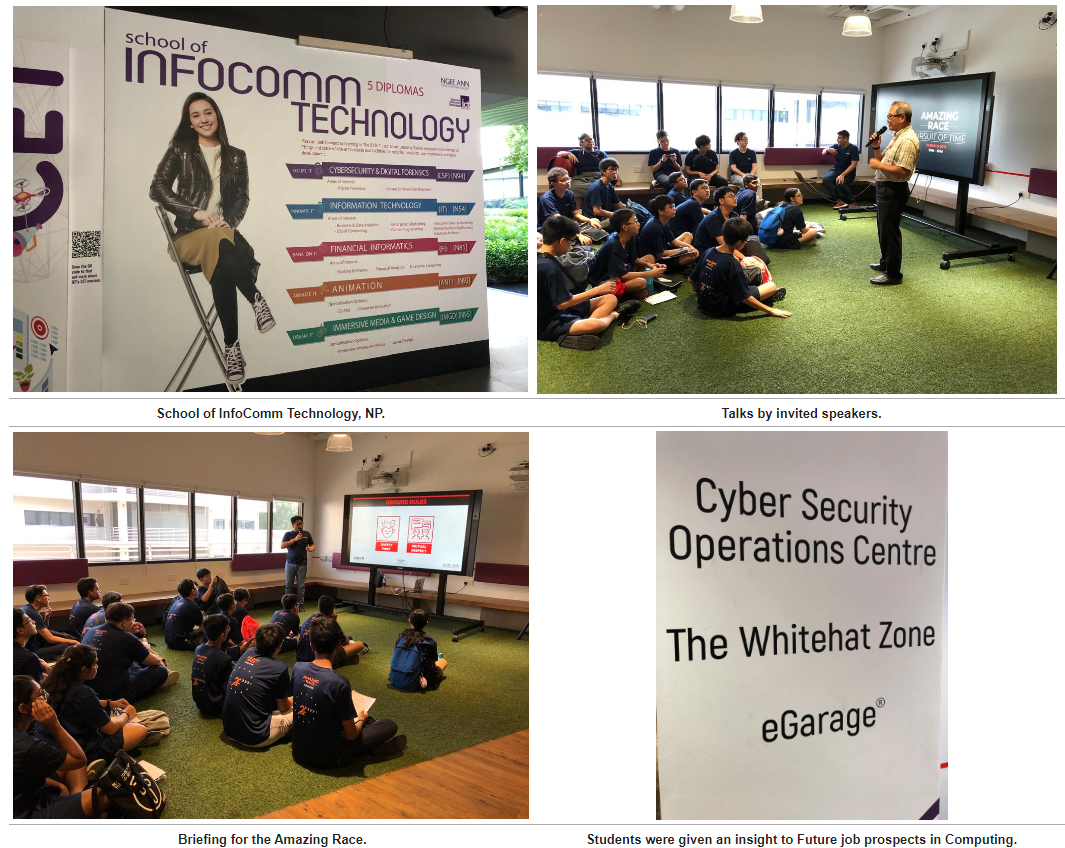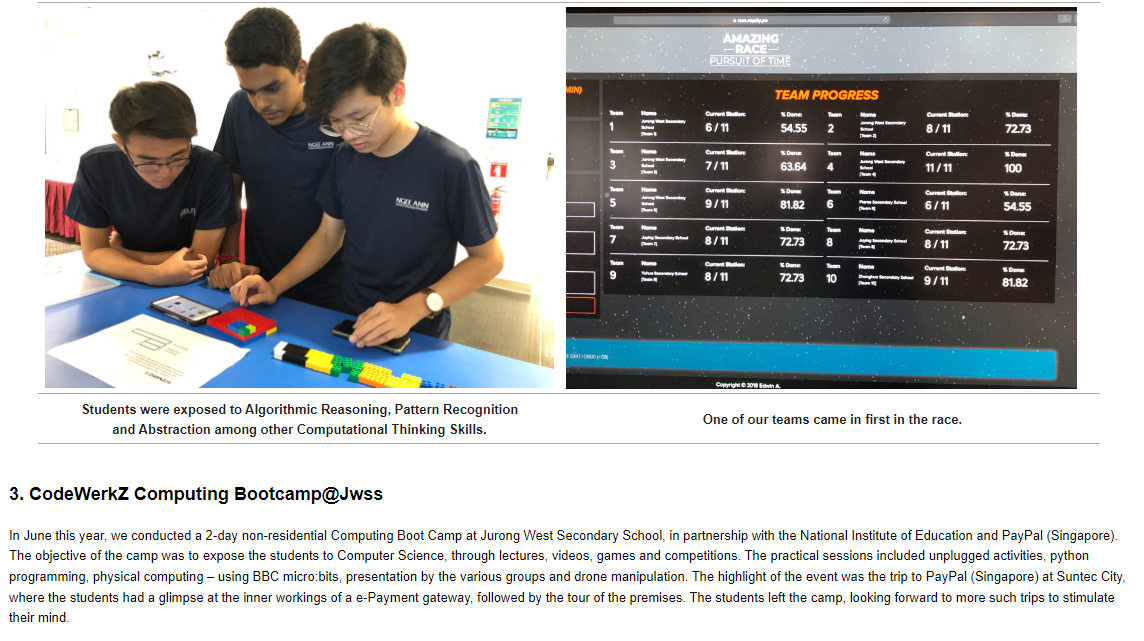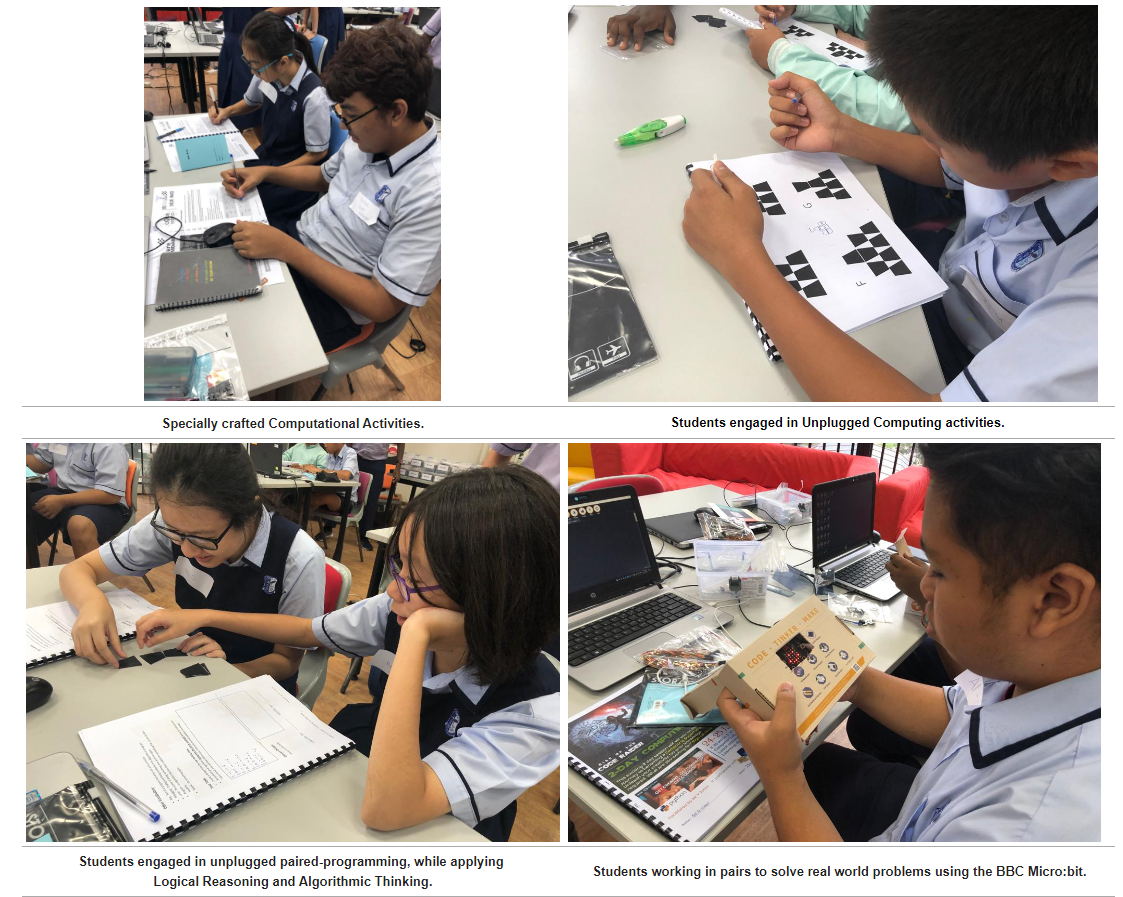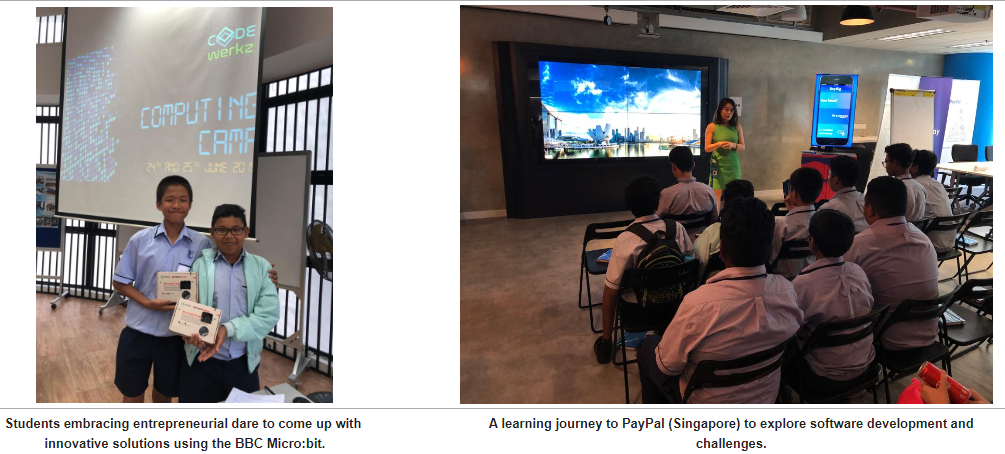Information and Communications Technology
Information and Communications Technology
Teaching Staff
|
01/ |
Ms Kiew Mee Ling, Angeline
|
02/ |
Mr Huzaini Bin Alwi
|
03/ |
Mr Nar Soon Keong
|
|---|---|---|---|---|---|
|
04/ |
Ms Farizah Binte Esman
|
05/
|
Ms Lim Li Ying
|
06/ |
Mr Mohammad Azri Bin Kasmanni
|
Computing
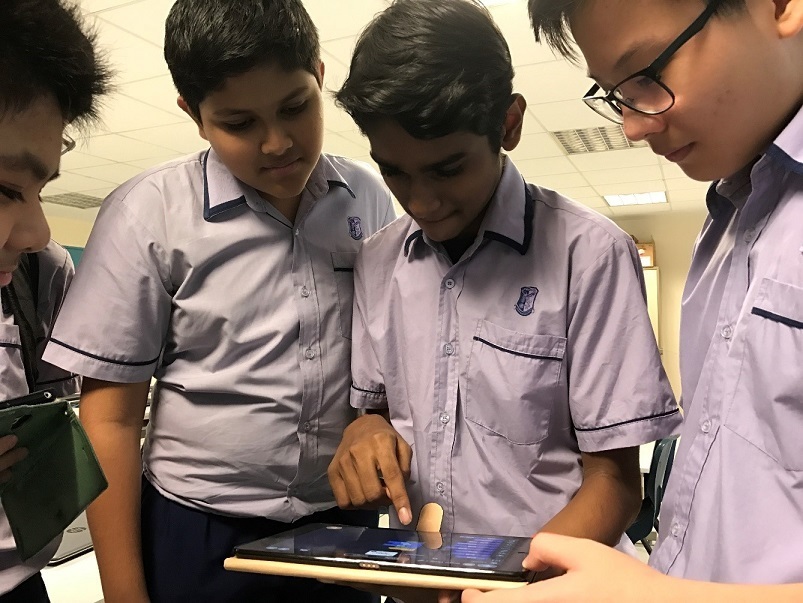
Subjects Offered
-
Computing (O-Level)
Overview
In the rapidly changing world, the skills to actively participate in the increasingly digital landscape, and be future ready is vital. The Smart Nation will call forth a new generation of computational and design thinkers who possess the problem-solving skills that are applicable in a diverse range of fields and most fields in the future will have a footing in computing. Armed with these skills, our students will have a competitive edge.
Curriculum
O-Level Computing is an MOE-applied subject offered from 2017

The two-year course at upper secondary level is to enable students to:
-
Apply Computational Thinking, Design Thinking and Systems Thinking Skills in analysing problems and developing solutions;
-
Develop simple programs through the use of appropriate programming language(s);
-
Understand how and where information communications technology (ICT) is used in daily life;
-
Understand and explain the ethical, social and economic issues associated with the use of ICT.
This syllabus comprises four modules of study to cover five common areas of computer science concepts and skills.
The four modules are:
-
Module I – Data and Information
-
Module II – Systems and Communications
-
Module III – Abstraction and Algorithms
-
Module IV – Programming
The value of computing lies in the integrative use of software and hardware to create new artefacts that solve or address real-world problems.
T & L Framework
Computing Education Framework
(The outer ring are examples of topics that could be covered for the three dimensions in the inner ring. The middle rings shows the components of each dimension.)
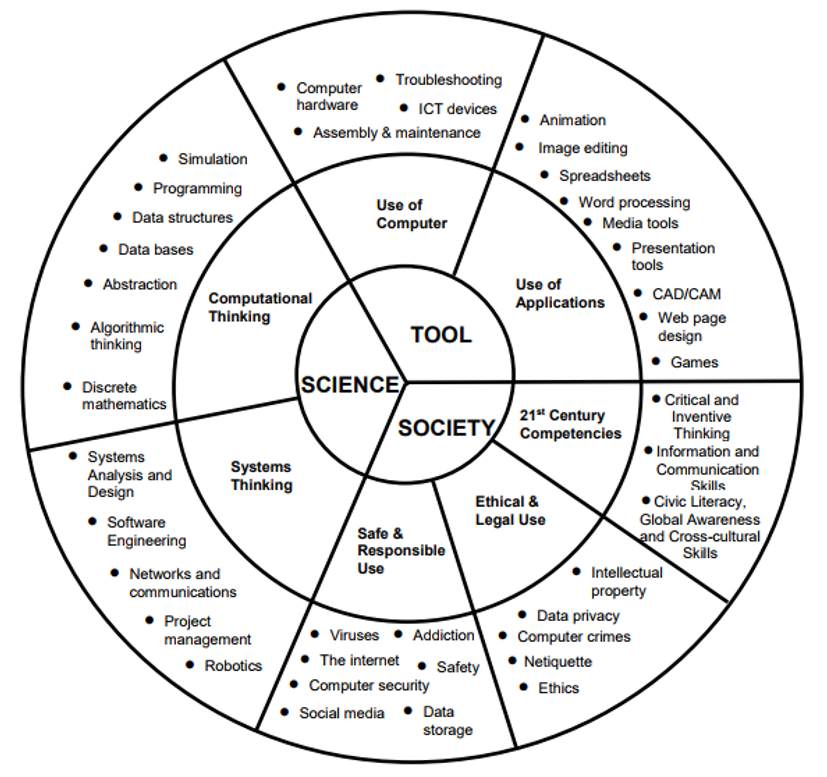
Computing Education Framework – Relationship Diagram
An important aspect of the Computer Education Framework is the relationship
between the Core Concepts, Computational Thinking and Practices:
Core Concepts and Computational Thinking are applied in the Practices,
and the Practices will in turn deepen one’s understanding of the Core Concepts.
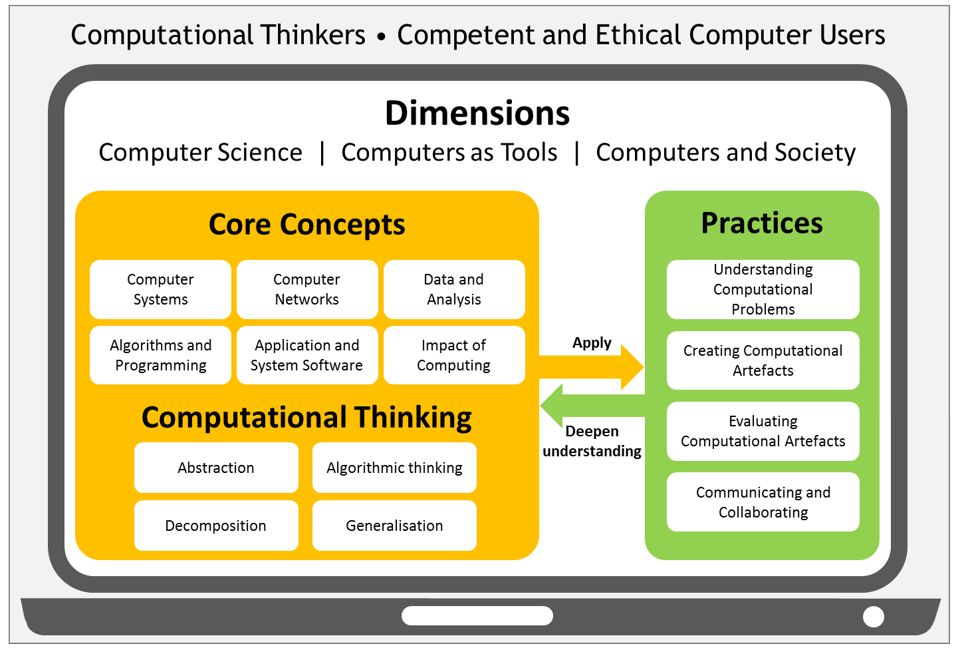
Computer Applications
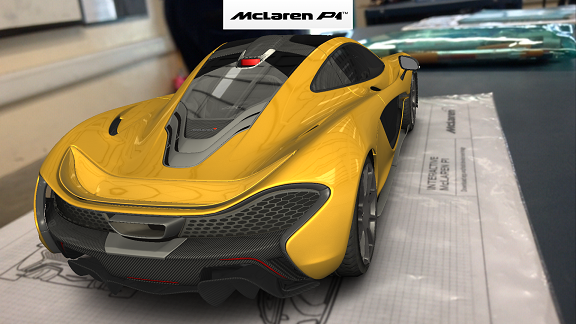
Subjects Offered
-
Computer Applications (N-Level)
Curriculum
Computer Applications (CPA) is a compulsory subject for all Normal Technical (NT) students. The CPA curriculum spans four years, from Secondary 1 to Secondary 4, leading to national examinations at the end of Secondary 4.
The lower secondary syllabus focuses on equipping students with fundamental ICT skills that will support learning of the other NT subjects and are useful in their personal life. At the upper secondary levels, the syllabus focuses on higher-order thinking skills. There is attention to problem solving and understanding basic programming concepts and skills. Basic programming concepts and skills will be learnt through simple animation and game design; and eventually, applying them to solve problems in everyday context. This will better prepare students for further studies in programming and media-related courses; as well as for the work place and future learning.
All students will be exposed to internet technologies and tools that are readily available e.g. using collaborative tools from Google Apps. Hands-on activities continue to be the main feature of this skill-based subject. Tasks that require an integrated use of office software applications and problem sets that step the learner through the learning process will feature prominently in the course of learning.
Students will have opportunities to do creative work with animation and game development projects that will be part of the curriculum in Secondary 2 and Secondary 3, respectively.
T & L Framework
CPA Education Framework
(The outer ring are examples of topics that could be covered for the three dimensions in the inner ring. The middle rings shows the components of each dimension.)
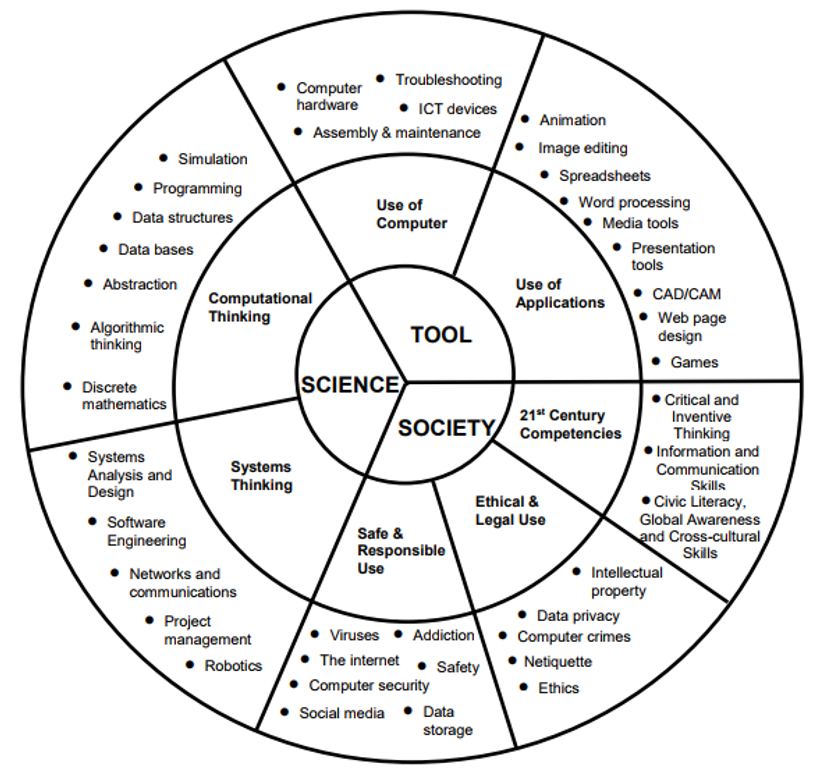
ICT Programme
Animation and Game Making Competition 2020
The Animation and Game Making (Previously known as Media Computing (MEC)) Competition is an annual competition for Secondary students offering Computer Applications. It is organised by the Computer Education Unit, Curriculum Planning and Development Division. The objectives of the AGM Competition are to provide a platform to showcase students’ work, develop students’ interest in media design; and hone students’ communication and presentation skills.
Students are to create a game based on the theme, Adventure. We are proud to announce that Tan Li Chuan, 3T1 is awarded the Bronze Award for the Animation and Game Making Competition – Game Category.
Awards:
Tan Li Chuan, 3T1 is awarded the Bronze Award
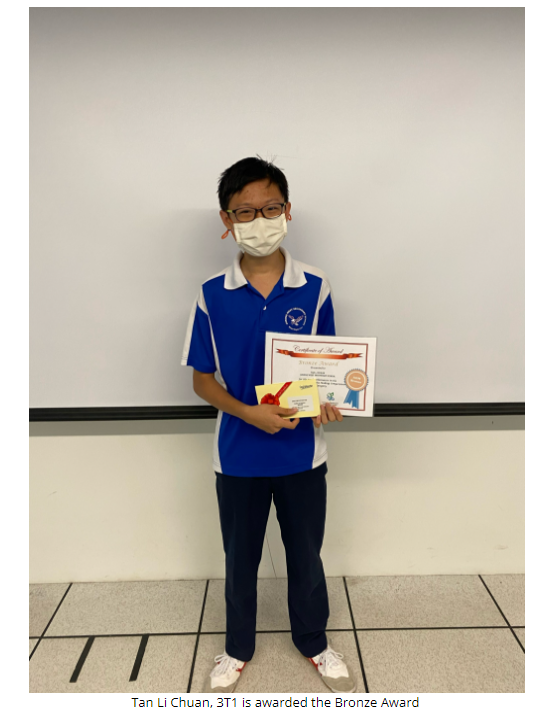
NTU School of Computer Science and Engineering (SCSE) Python Workshop
The Python Programming Workshop for the Youth was organised by NTU Computer Science and Engineering Club, in partnership with Jurong West Secondary School. The program aimed at providing students from Jurong West Secondary School an exposure to modern computational thinking and cultivate their interest in Information Technology as well as providing opportunities for SCSE students to participate in community events. The students participated actively and benefited from the five weeks of training, which culminated in a competition and presentation.
